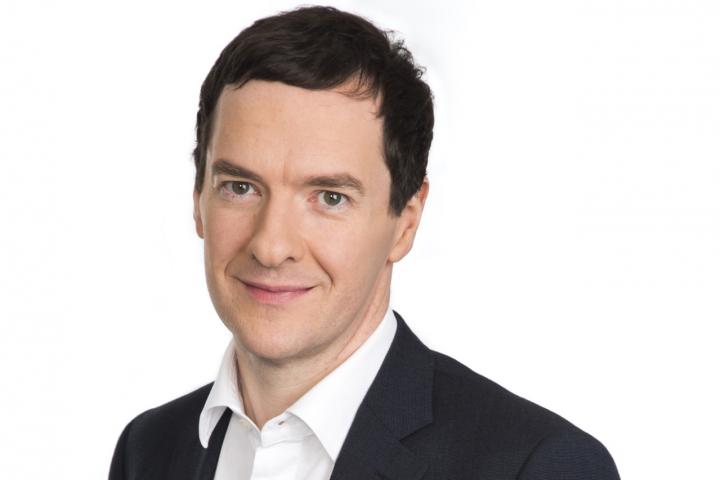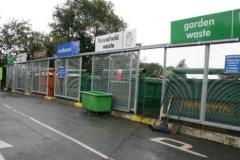
Chancellor of the Exchequer, George Osborne has announced that he will not be standing as a candidate to become the next Prime Minister following David Cameron's resignation on Friday, 24th June, but he will continue as the MP for Tatton.
Speaking about the result of last week's EU Referendum, which saw Britain vote to leave the European Union, George Osborne told alderleyedge.com "There's no question about me stopping being MP for Tatton. Whatever I do in politics, representing the constituents of Tatton in Parliament is the biggest honour and the responsibility I put first and foremost."
He added "I respect the views of everyone who voted in the referendum; and we must accept the result."
On his Facebook page George Osborne issued the following statement about why he will not be a candidate to succeed David Cameron but will do all he can to fulfil his duty to his country and unite the Conservative party.
I have a simple view of my duty as chancellor of the exchequer and someone who has given much of my adult life to political service. It can be summed up in one phrase: it's my country, right or wrong. I intend to fulfil my responsibilities to my country now.
We have had the EU referendum. The outcome isn't the one I wanted but now we have got to work to deliver the verdict of the people. That doesn't mean that the values I have campaigned so hard for are ones that I am going to abandon — or I think the country should abandon.
First, I believe that the bedrock of social justice is economic security and stability. If our economy isn't creating jobs, if wages are falling, if savings are being eroded, then hopes and aspirations are crushed.
That is why I have spent six years working so hard to turn around the British economy. I took difficult and unpopular decisions with the support of my friend David Cameron and fellow Conservative MPs. The plan we pursued paid off. The UK has been the strongest among advanced economies; a record proportion of our citizens are in work; and the 11 per cent budget deficit I faced on walking into No 11 was on course to be less than 3 per cent this year.
Thanks to the efforts of the British people we did fix the roof, and thank goodness we did. It puts us in the strongest position to deal with the challenge that now confronts us.
We have seen and can expect to see more volatility on the markets. Businesses are already pausing investment. Hiring decisions have been put on hold.
I do not resile from any of the concerns I raised during the campaign. But now we must respond loud and clear: Britain is open for business and the British economy is fundamentally strong.
We've also worked hard to rebuild the strength of our banking system. Robust contingency plans are in place so that the financial system can absorb the shocks rather than amplify them as it did eight years ago.
There are going to be questions about the road ahead, but nothing has changed overnight. We remain in the EU. The prime minister has sensibly delayed the triggering of Article 50 — the formal notification of an intention to leave within two years — and the timing of that will be a matter for his successor. Only the UK can do this, and we should not be rushed. It should only happen when we have a clear view of what our new relationship with our European allies should be, and this will need time and cool heads to determine.
We are also absolutely committed to fiscal responsibility as a crucial requirement of stability. The Office for Budget Responsibility, that we created, will give an independent assessment of the impact on public finances in the autumn and the government will have to respond accordingly, under a new prime minister.
If economic security is the first value to which I hold dear, the second is that Britain should be an open, confident and free-trading nation. That has always been the British way, and it is at the heart of our prosperity.
In my six years as chancellor I have sought new opportunities in China and India, and to build up Britain as a centre of global finance.
We have set among the lowest and most competitive business tax rates in the world. We are going to need these advantages more than ever.
I am very clear that we should be aiming to have the best possible terms of trade in goods and services, including financial services, with the EU. That must be the model we seek.
The third value that runs through my politics is my belief in a tolerant and generous society. Eleven years ago I ran David Cameron's campaign to be leader of the Conservative Party. Our commitment was that we would be a modern, compassionate party that celebrated our multifaith, multirace democracy where people feel free to live their lives as they choose. One of the few pieces of news that put a smile on my face in recent days was when my cabinet colleague Justine Greening announced that she was in a happy, same-sex relationship.
I am deeply disturbed by what we have seen in recent days: reports of Polish community centres being sprayed with graffiti, cards telling people to "get out" pushed through doors, children of immigrants being bullied in schools. This is unacceptable and appalling.
We must be uncompromising in our response: this is not the British way. This is not who we are.
These are the challenges facing Britain's future.
As for my own future, I will not be a candidate in the Conservative leadership election to come.
It isn't in my nature to do things by half-measure, and I fought the referendum campaign with everything I've got. I believed in this cause and fought hard for it. So it is clear that while I completely accept the result, I am not the person to provide the unity my party needs at this time.
Instead, as chancellor, I will be 100 per cent focused on providing the economic stability and reassurance Britain needs. And I will do all I can to support the new prime minister in bringing our party back together and tackling the country's challenges.
Britain has a great task now to make its new position in the world work. Let's be confident that whatever difficulties confront us as we negotiate it, we do so from a position of hard-won strength.
As has always been the case in our history, it is at its moments of greatest challenge that our country must demonstrate its greatest resolve.








